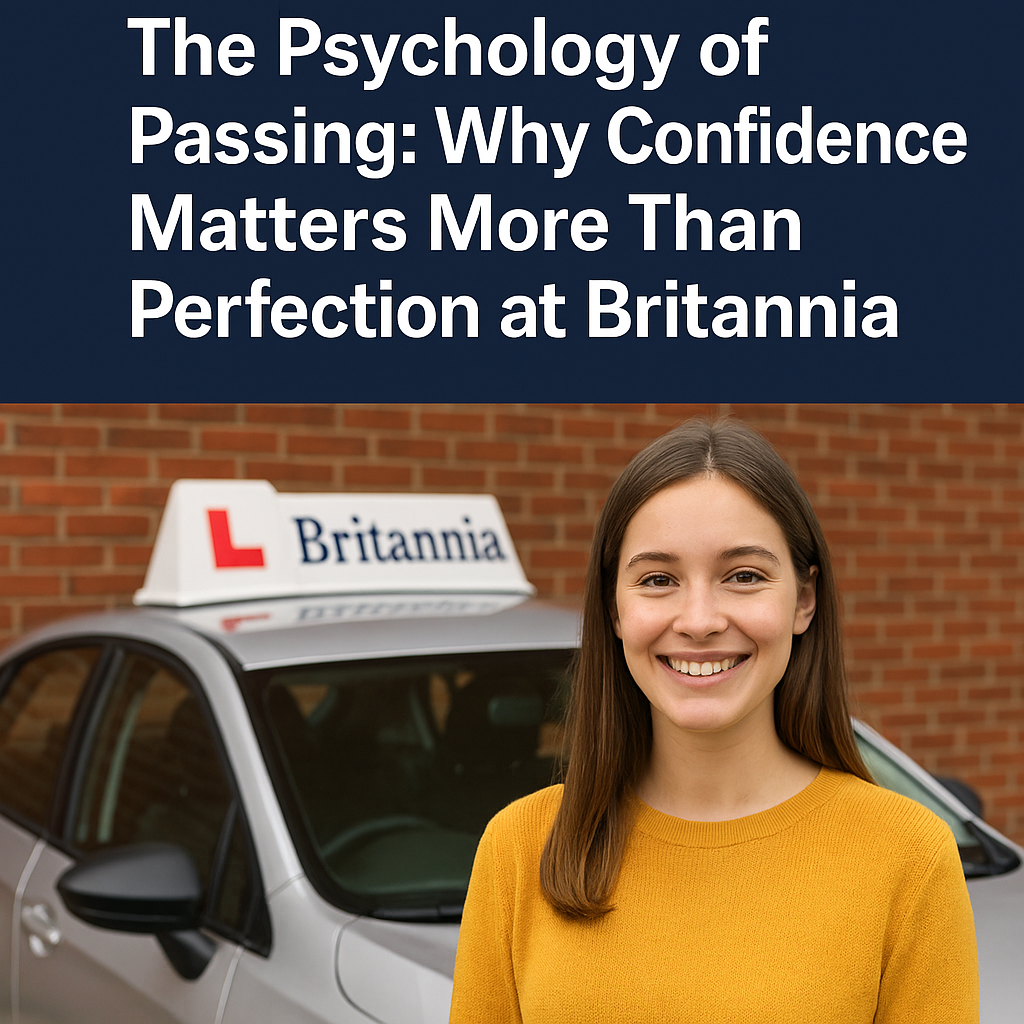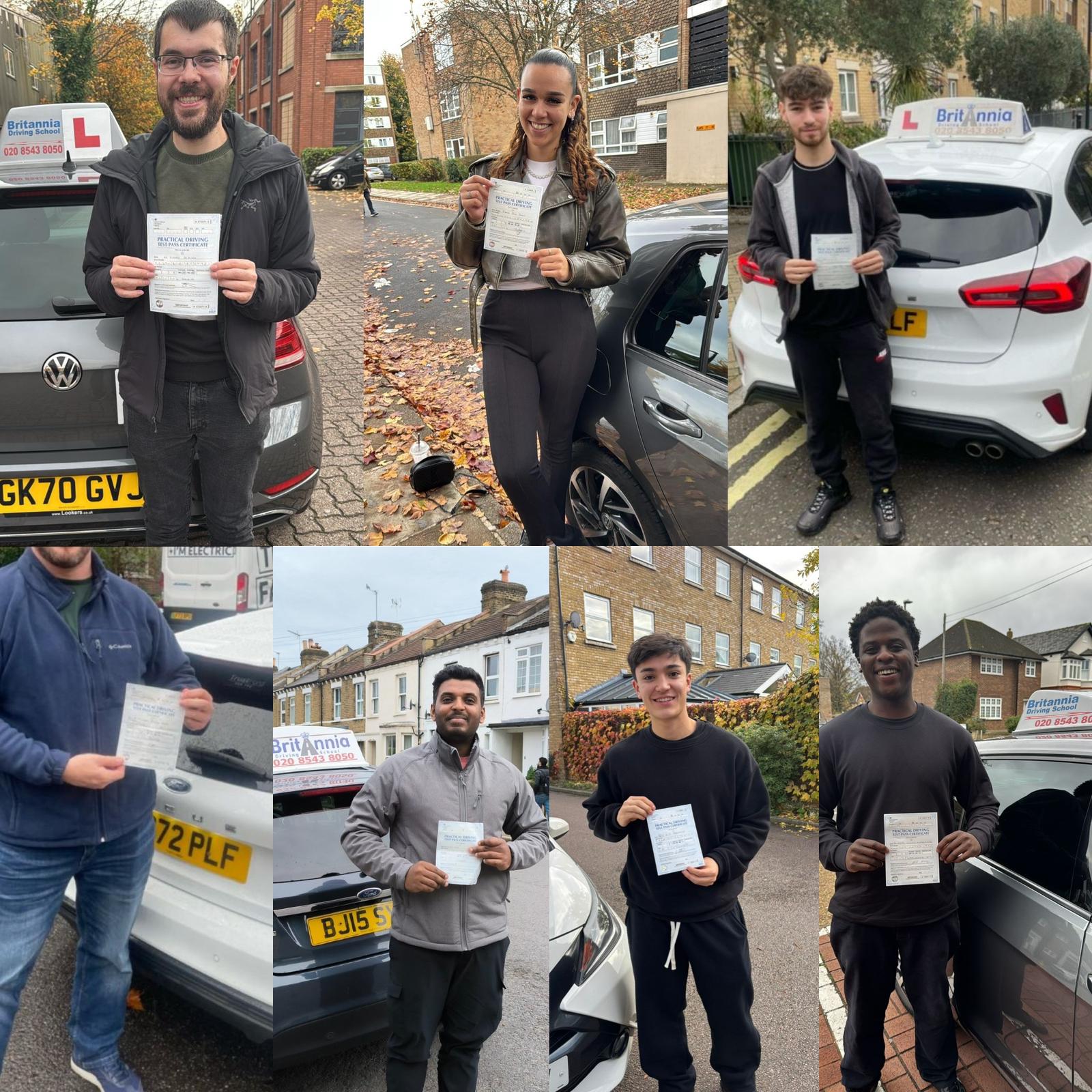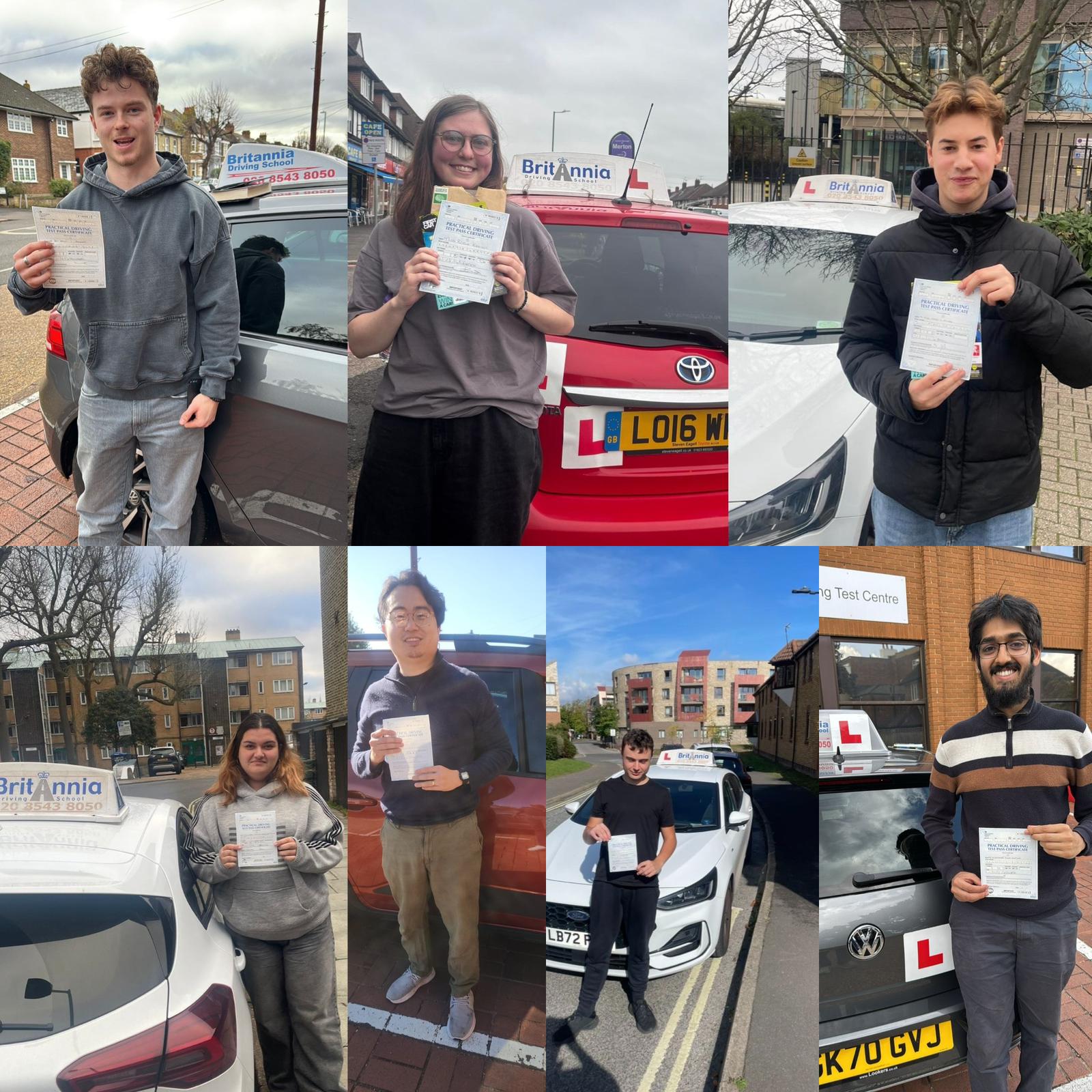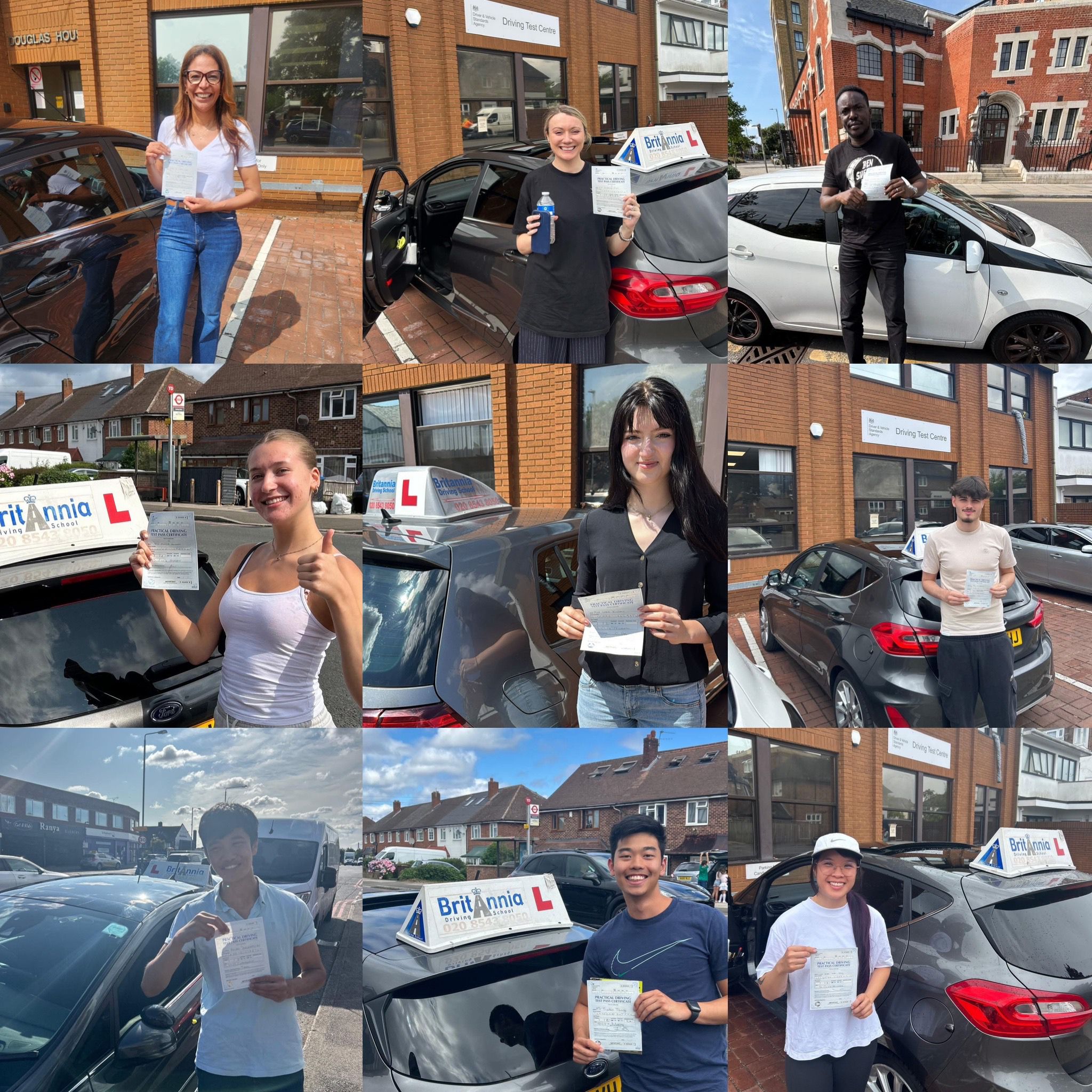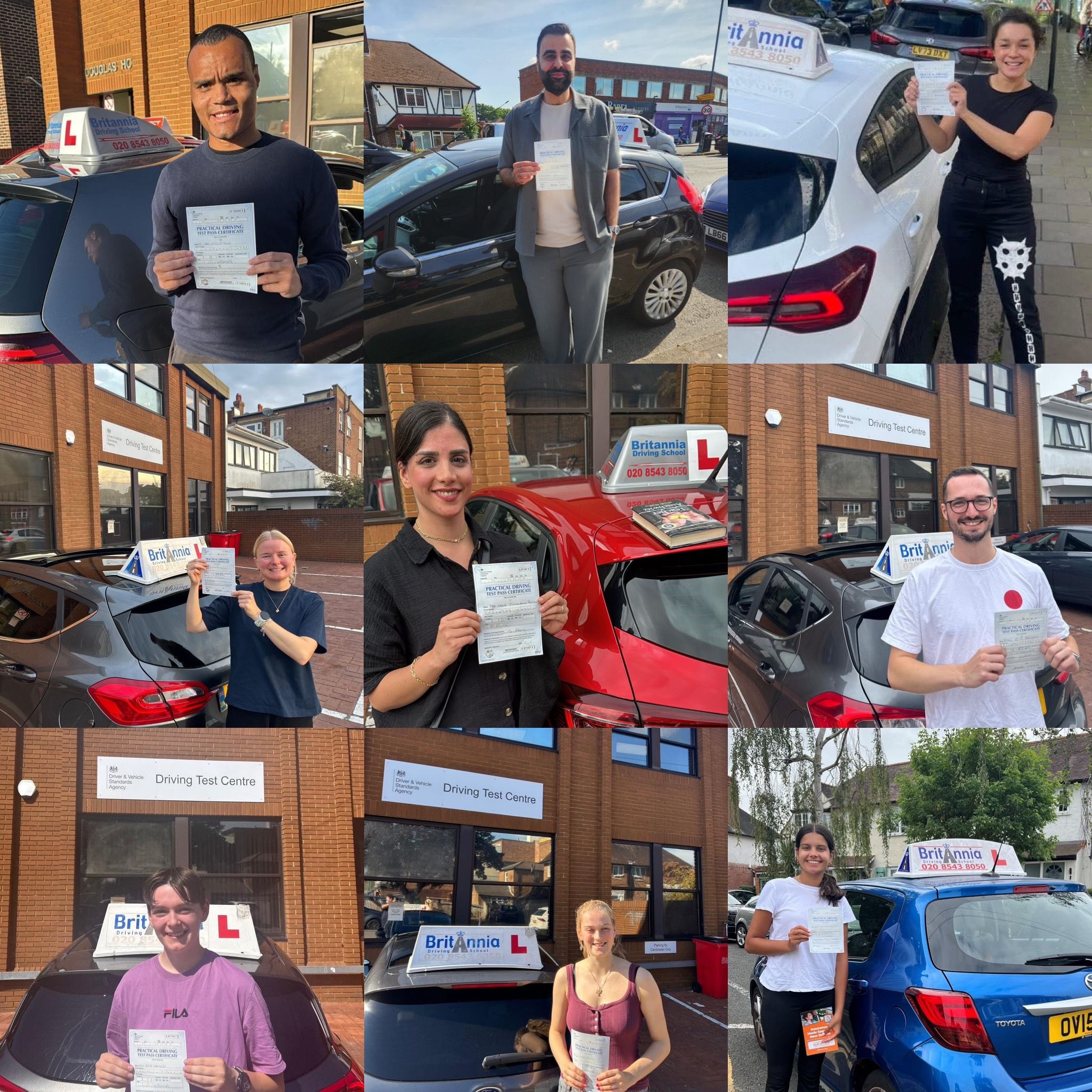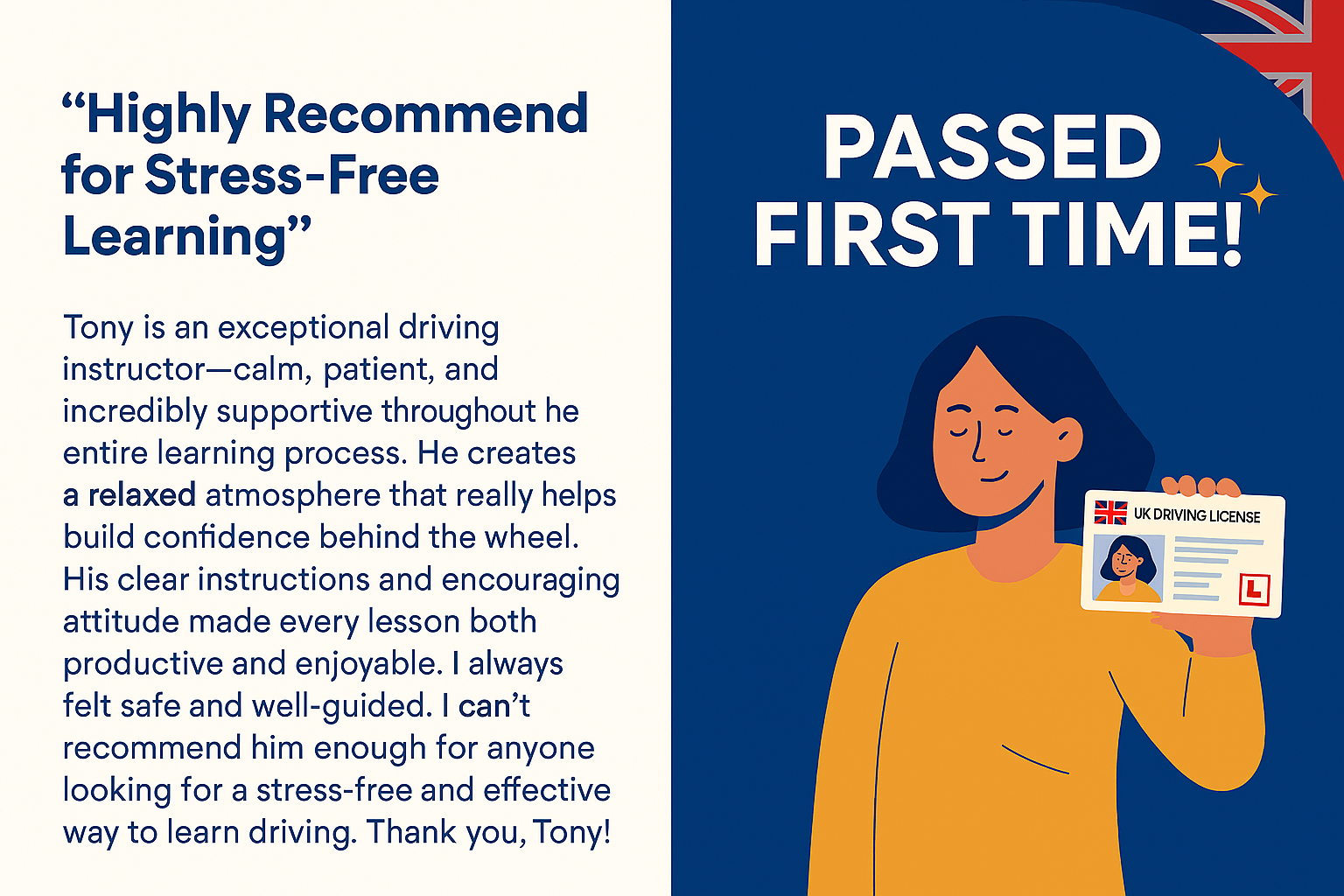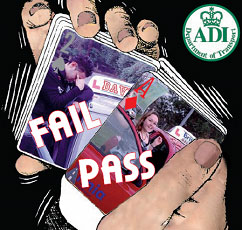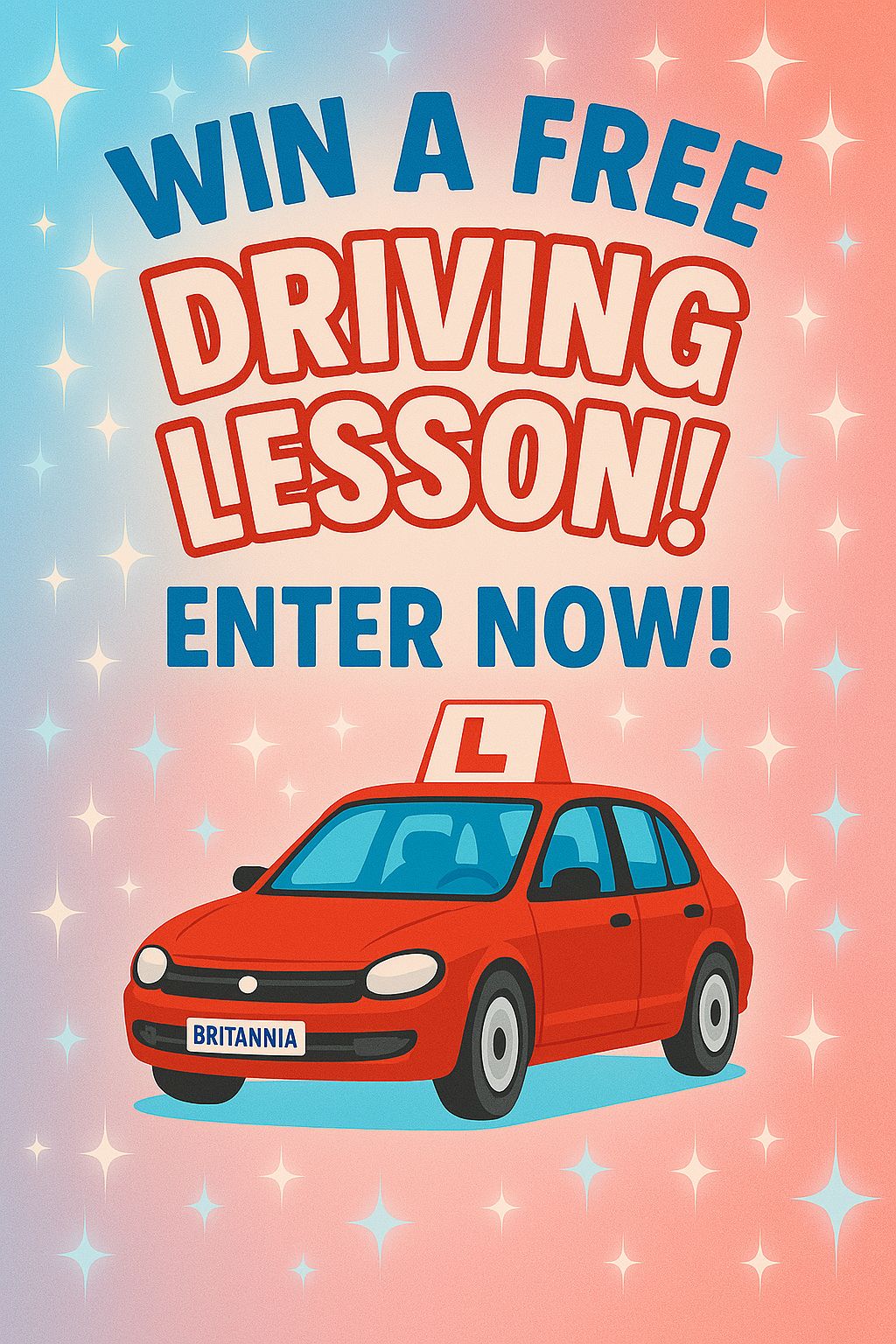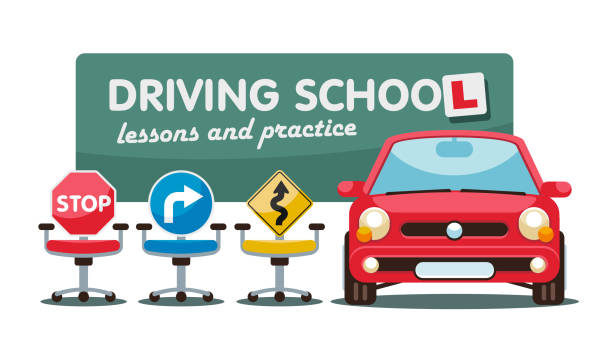If you’re thinking about starting your driving journey with Britannia, there’s something important you should know from the very beginning: passing your test isn’t about being perfect. It’s about feeling confident, supported, and ready — and that’s exactly what we specialise in.
Confidence Is the Real Game‑Changer
Most learners don’t struggle because they can’t drive. They struggle because nerves get in the way. At Britannia, we understand that. Our instructors are trained to help you stay calm, think clearly, and let your skills shine through. When you feel supported, your brain works with you, not against you — and suddenly everything feels easier.
Perfection Isn’t Required — Progress Is
A lot of new pupils worry they need a flawless drive to pass. You don’t. Examiners look for safe, consistent driving, not robotic precision. A stall or a shaky moment won’t ruin your test — especially if you recover well. That’s something we teach from day one: mistakes are part of learning, not something to fear.
We Build Confidence Through Small, Steady Wins
Every lesson at Britannia is designed to give you achievable progress:
• A smoother pull‑off
• A roundabout that finally makes sense
• A manoeuvre that clicks
• A moment where you realise, “I can actually do this”
We celebrate these wins with you because they’re the building blocks of real confidence.
Your Instructor Will Believe in You Before You Believe in Yourself One of the biggest boosts for new pupils is knowing your instructor genuinely has your back. Britannia instructors are patient, encouraging, and experienced at spotting your strengths long before you notice them. When we say you’re ready, it’s because we’ve seen the evidence — lesson after lesson.
Test Day Feels Less Scary When You’ve Trained the Britannia Way
Our goal is simple: by the time you reach test day, it should feel like just another drive. No drama. No panic. Just you, your skills, and the confidence you’ve built with us. That’s why so many of our pupils walk into their test feeling calm, prepared, and quietly proud of how far they’ve come.
A Final Word for Anyone Thinking of Joining Us
If you’re looking for a driving school that focuses on you — your mindset, your confidence, your progress — Britannia is the right place. We don’t chase perfection. We build capable, confident drivers who pass because they’re ready, not because they’re lucky.
Your journey starts with belief — and we’ll help you find it.
 Buy Gifts Vouchers Here
Buy Gifts Vouchers Here Intensive Driving Courses
Intensive Driving Courses Driving Test Booking Services
Driving Test Booking Services


